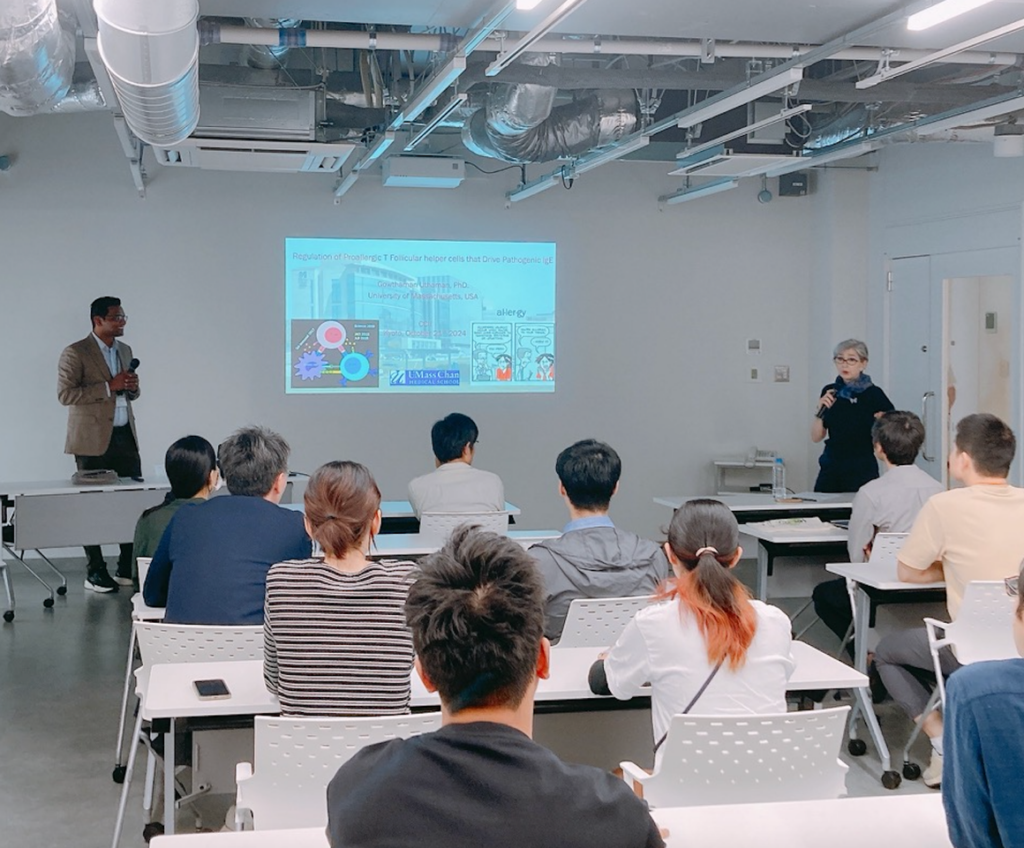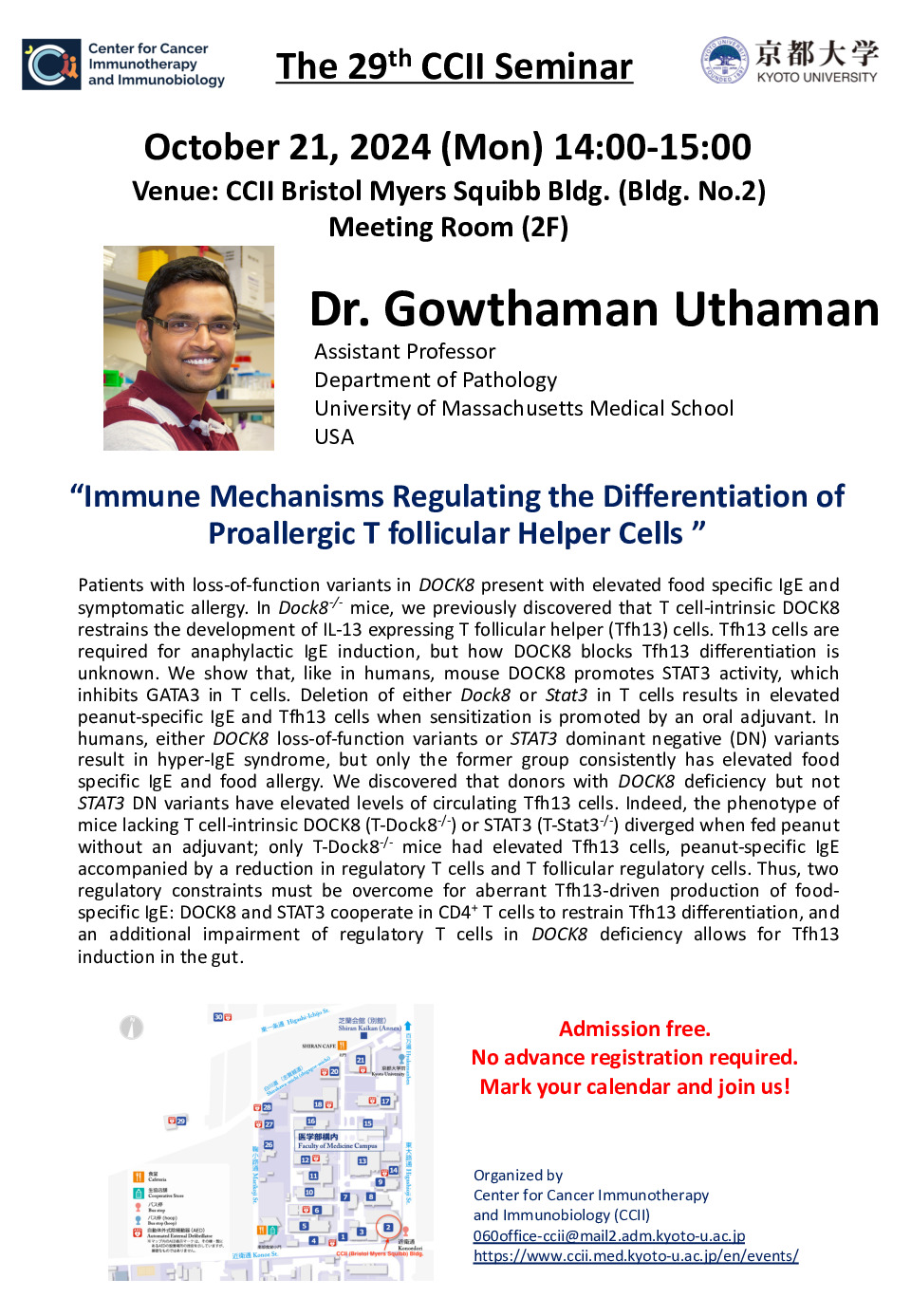開催日時 & 会場
- 2024年10月21日、14:00-15:00
- 会場: Bristol Myers Squibb Building, Meeting Room (2F)
- 対面型, 参加無料
- 主催者 : がん免疫総合研究センター (CCII)
演者

Dr. Gowthaman Uthaman
Assistant Professor
Department of Pathology
University of Massachusetts Medical School
USA
概要
Patients with loss-of-function variants in DOCK8 present with elevated food specific IgE and symptomatic allergy. In Dock8-/- mice, we previously discovered that T cell-intrinsic DOCK8 restrains the development of IL-13 expressing T follicular helper (Tfh13) cells. Tfh13 cells are required for anaphylactic IgE induction, but how DOCK8 blocks Tfh13 differentiation is unknown. We show that, like in humans, mouse DOCK8 promotes STAT3 activity, which inhibits GATA3 in T cells. Deletion of either Dock8 or Stat3 in T cells results in elevated peanut-specific IgE and Tfh13 cells when sensitization is promoted by an oral adjuvant. In humans, either DOCK8 loss-of-function variants or STAT3 dominant negative (DN) variants result in hyper-IgE syndrome, but only the former group consistently has elevated food specific IgE and food allergy. We discovered that donors with DOCK8 deficiency but not STAT3 DN variants have elevated levels of circulating Tfh13 cells. Indeed, the phenotype of mice lacking T cell-intrinsic DOCK8 (T-Dock8-/-) or STAT3 (T-Stat3-/-) diverged when fed peanut without an adjuvant; only T-Dock8-/- mice had elevated Tfh13 cells, peanut-specific IgE accompanied by a reduction in regulatory T cells and T follicular regulatory cells. Thus, two regulatory constraints must be overcome for aberrant Tfh13-driven production of food specific IgE: DOCK8 and STAT3 cooperate in CD4+ T cells to restrain Tfh13 differentiation, and an additional impairment of regulatory T cells in DOCK8 deficiency allows for Tfh13 induction in the gut.


